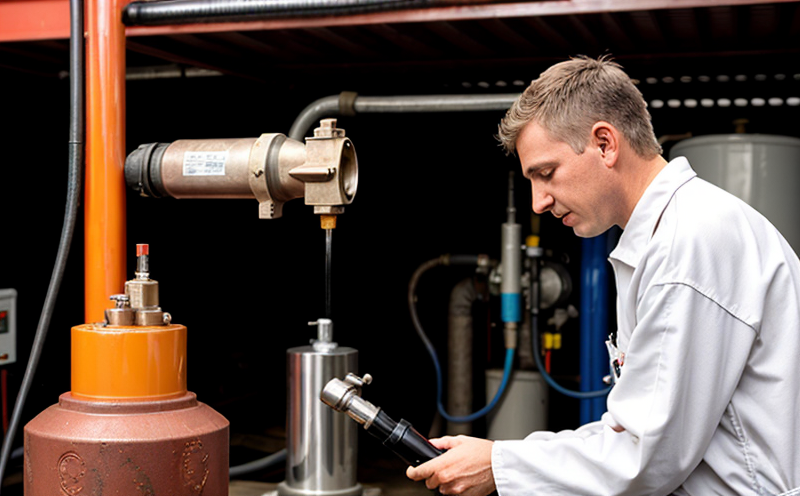ISO 20884 Trace Sulfur Analysis of Aviation Fuels
The ISO 20884 standard is a cornerstone in the aviation fuel industry, providing stringent requirements for the trace sulfur content to ensure the safety and reliability of jet fuels. This service focuses on the precise measurement of trace sulfur levels using advanced analytical techniques. Trace sulfur can impact the performance, corrosivity, and overall quality of aviation fuels.
Understanding the importance of this parameter is crucial because even minute amounts of sulfur compounds in aviation fuel can lead to significant issues such as corrosion of engines, reduced combustion efficiency, and potential safety hazards during flight operations. Therefore, compliance with ISO 20884 ensures that the fuel meets stringent international quality standards.
The analysis process involves several steps: sample preparation, calibration of equipment, and the actual measurement using a gas chromatography (GC) technique. The GC method is chosen for its precision in detecting even trace amounts of sulfur compounds present in aviation fuels.
Sample preparation is critical to ensure accurate results. This includes ensuring that the fuel sample is representative and free from contamination. Precautionary measures are taken to prevent any introduction of foreign materials into the sample, which could skew the analytical results. The calibration process involves using known standards to set up the GC instrument accurately.
The analysis itself requires meticulous attention to detail. After the calibration step is complete, the fuel sample is injected into the GC system. The system separates the components of the fuel, and then the sulfur compounds are detected by a specialized detector. This process allows for an accurate quantification of trace sulfur content.
The precision and accuracy of this method have been validated through multiple rounds of testing across various laboratories around the world. Compliance with ISO 20884 ensures that fuel suppliers meet stringent international standards, thereby enhancing safety and reliability in aviation operations.
For quality managers and compliance officers working within the aerospace sector, adhering to such rigorous standards is essential for maintaining high-quality fuel supplies. This service not only helps in meeting regulatory requirements but also aids in proactive management of fuel quality.
Applied Standards
- ISO 20884:2015: This standard outlines the procedures for determining trace sulfur content in aviation fuels, emphasizing precision and accuracy.
- ASTM D4294-16: Another widely recognized standard that provides supplementary methods for measuring trace sulfur in aviation fuel.
Industry Applications
The aerospace and aviation industry places a high premium on the quality of its fuels. Ensuring that the trace sulfur content is within acceptable limits is critical for maintaining engine performance, reducing wear and tear, and preventing corrosion in fuel systems.
- Fuel Supplier Quality Assurance: Suppliers must comply with ISO 20884 to ensure their products meet international standards.
- Regulatory Compliance: Airlines and other aviation companies need to verify that the fuel they use conforms to these stringent regulations.
- R&D Projects: Researchers working on new formulations of fuels benefit from this service as it helps validate their product before commercialization.
Use Cases and Application Examples
- Pre-Production Testing: Manufacturers use ISO 20884 to ensure that the fuel formulations meet the required trace sulfur limits before mass production.
- In-Service Monitoring: Airlines conduct periodic checks on their fuel supplies to ensure ongoing compliance with international standards.





